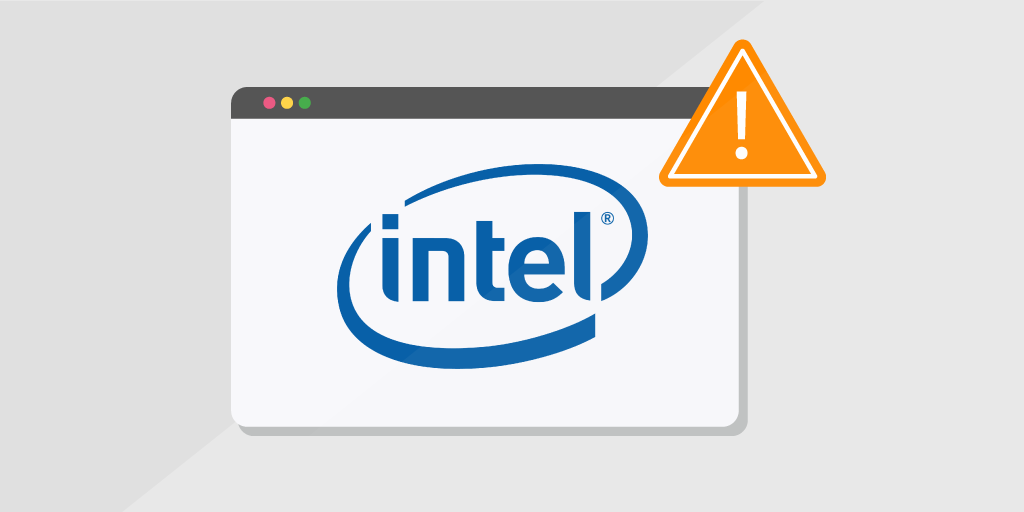
Intel released its June 2021 platform update which contains fixes for 73 vulnerabilities detected in their utility tools, BIOS versions, and CPU microcodes. In total 29 advisories were published on June 8th to cover all of the vulnerabilities disclosed.
⚡ TL;DR | Go Straight to the Intel June 2021 Platform Update Vulnerabilities Audit.
CVE-2020-24489 – Intel VT-d Products
One of the highest-scoring vulnerabilities with a CVSS Base Score of 8.8 is a vulnerability in the Intel Virtualization Technology for Directed I/0 (VT-d) products. This can lead to local escalation of privilege on machines affected which is, unfortunately, quite the list. You can find it in the Intel-sa-00442 advisory.
In addition to this vulnerability, 3 more advisories were released covering fixes for a wide range of Intel processors (listed as sa-00463, sa-00464, and sa-00465). These include a BIOS firmware vulnerability which can lead to escalation of privilege or denial of service, Improper isolation of shared resources of processors and a domain-bypass transient execution vulnerability in Atom processors.
Since most modern CPUs and some older ones fall under one of these vulnerabilities, it is best you check if your vendors have updates available. To get an overview of which processors are in your environment, you can simply use our processor information report.
Want to run this Audit Report?
Start your Free Lansweeper Trial to run the Audit Report.
Try for FreeIntel Software Utilities Vulnerabilities
Aside from the security fixes for processors, multiple software utilities also received fixes. This includes the VTune Profiler, Processor Diagnostic Tool, Driver and Support Assistant, Unite Client, Optane DC Persistent Memory, SSD Data Center Tool and more.
To check if you’re running any of the software utilities, you can use the specialized color-coded report we created. Any computer with software or components in one of the 10 advisories covered will be included in the report for you to check.
Intel Vulnerability CVE Codes Overview
| Intel Vulnerability CVE Codes | CVE Code Description |
| CVE-2021-0086 | Escalation of Privilege |
| CVE-2021-0104 | Escalation of Privilege |
| CVE-2021-0106 | Escalation of Privilege |
| CVE-2021-0100 | Escalation of Privilege |
| CVE-2021-0074 | Escalation of Privilege |
| CVE-2021-0052 | Escalation of Privilege |
| CVE-2021-0133 | Escalation of Privilege |
| CVE-2021-0132 | Denial of Service |
| CVE-2021-0131 | Information Disclosure |
| CVE-2021-0134 | Denial of Service |
| CVE-2020-26555 | Spoof the BD_ADDR |
| CVE-2020-26558 | man-in-the-middle attack |
| CVE-2021-0077 | Escalation of Privilege |
| CVE-2021-0129 | Information Disclosure |
| CVE-2020-26558 | man-in-the-middle attack |
| CVE-2021-0086 | Escalation of Privilege |
| CVE-2021-0089 | Information Disclosure |
| CVE-2021-0067 | Escalation of Privilege |
| CVE-2021-0054 | Escalation of Privilege |
| CVE-2021-0094 | Escalation of Privilege |
| CVE-2021-0073 | Escalation of Privilege |
| CVE-2021-0090 | Escalation of Privilege |
| CVE-2021-0056 | Escalation of Privilege |
| CVE-2021-0057 | Escalation of Privilege |
| CVE-2021-0058 | Escalation of Privilege |
| CVE-2021-0112 | Escalation of Privilege |
| CVE-2021-0098 | Escalation of Privilege |
| CVE-2021-0108 | Escalation of Privilege |
| CVE-2021-0102 | Escalation of Privilege |
| CVE-2021-0055 | out of bounds read |
| CVE-2021-0051 | Denial of Service |
| CVE-2021-0001 | Information Disclosure |
| CVE-2020-24474 | Escalation of Privilege |
| CVE-2020-24473 | Escalation of Privilege |
| CVE-2020-24475 | Denial of Service |
| CVE-2021-0101 | Escalation of Privilege |
| CVE-2021-0070 | Escalation of Privilege |
| CVE-2021-0113 | Denial of Service |
| CVE-2021-0097 | Denial of Service |
| CVE-2021-0105 | Denial of Service |
| CVE-2020-24513 | Information Disclosure |
| CVE-2020-24511 | Information Disclosure |
| CVE-2020-24512 | Information Disclosure |
| CVE-2020-12357 | Escalation of Privilege |
| CVE-2020-8670 | Escalation of Privilege |
| CVE-2020-8700 | Escalation of Privilege |
| CVE-2020-12359 | Escalation of Privilege |
| CVE-2020-12358 | Denial of Service |
| CVE-2021-0095 | Denial of Service |
| CVE-2020-12360 | Escalation of Privilege |
| CVE-2020-24486 | Denial of Service |
| CVE-2020-24515 | Escalation of Privilege |
| CVE-2020-24514 | Escalation of Privilege |
| CVE-2020-24509 | Escalation of Privilege |
| CVE-2020-8704 | Escalation of Privilege |
| CVE-2020-24507 | Information Disclosure |
| CVE-2020-24516 | Escalation of Privilege |
| CVE-2020-8703 | Escalation of Privilege |
| CVE-2020-24506 | Information Disclosure |
| CVE-2020-8702 | Escalation of Privilege |
| CVE-2020-24489 | Escalation of Privilege |
| CVE-2020-24485 | Escalation of Privilege |
| CVE-2020-12293 | Denial of Service |
| CVE-2020-12294 | Denial of Service |
| CVE-2020-12295 | Denial of Service |
| CVE-2020-12296 | Denial of Service |
| CVE-2020-12291 | Denial of Service |
| CVE-2020-12292 | Denial of Service |
| CVE-2020-12290 | Denial of Service |
| CVE-2020-12288 | Denial of Service |
| CVE-2020-12289 | Denial of Service |